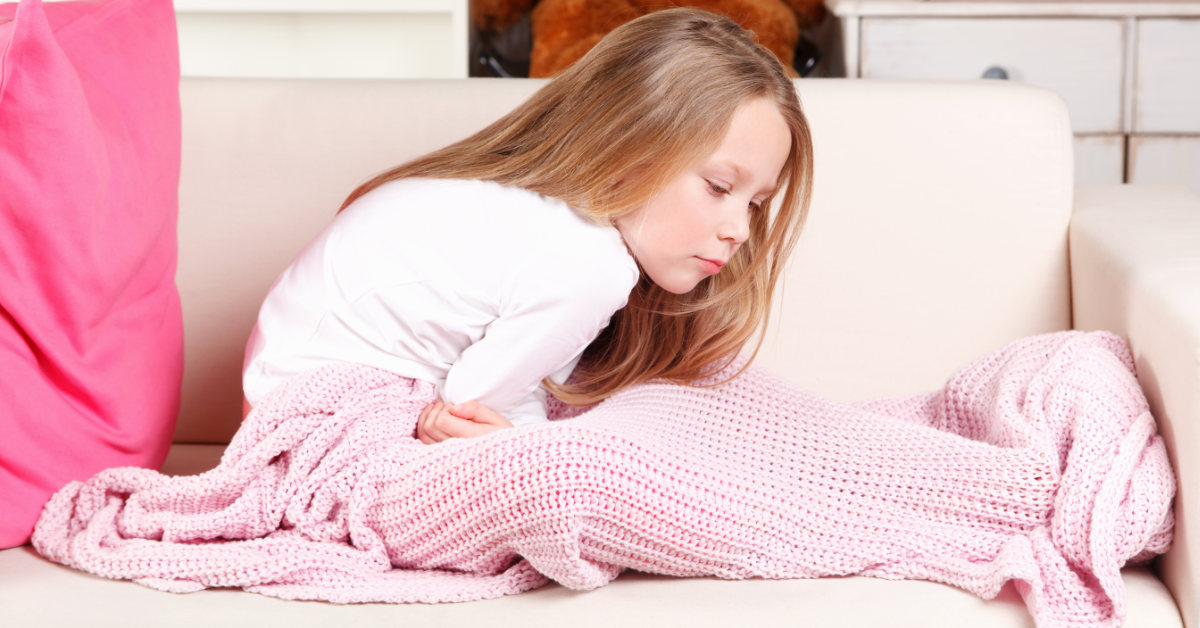Anxiety doesn’t discriminate. It’s a nervous disorder that plagues adults as well as children. But do you know what one major difference is between the two? Kids with anxiety need help, we just need to know how how to see it. You see, compared to children, adults can better express how they feel. Even when children do complain of things like upset stomachs or headaches, anxiety disorder probably isn’t the first thing that pops into your head. Anxiety is a natural and inevitable part of growing up. The symptoms that come with it are simply your body’s “fight or flight” response. New experiences – of which there are many in school – can often result in shyness, fear, and other anxious feelings. They can also cause changes in a child’s behavior, mood, and eating or sleeping habits.
According to the Anxiety and Depression Association of America (ADAA), the rate of childhood anxiety is rising. Anxiety disorders currently affect 25.1% of children between the ages of 13 and 18 in the United States. (1) According to the organization,
“Research shows that untreated children with anxiety disorders are at higher risk to perform poorly in school, miss out on important social experiences, and engage in substance abuse.”
People who have or teach kids know that recognizing a child’s pain can be challenging. Whether they don’t know how to articulate their symptoms or are afraid of visiting a doctor, it’s important to recognize the potential signs kids with anxiety display.
Signs Your Kid May Be Struggling with Anxiety
Because these signs and symptoms can be subtle or easy to miss, it’s up to adults to listen and watch more closely.
“Many times, pain syndromes come along with depressive and anxiety symptoms,” says psychiatrist Veena Ahuja, MD. (2) “And if you first resolve any underlying medical issues, it helps with the depression and anxiety.”
Here are three areas you should know about, according to experts from the UCLA Child Anxiety Resilience Education and Supports (CARES) Center, John Piacentini, Ph.D., and Lindsey Bergman, Ph.D. (3)
1. Emotional Signs in Children
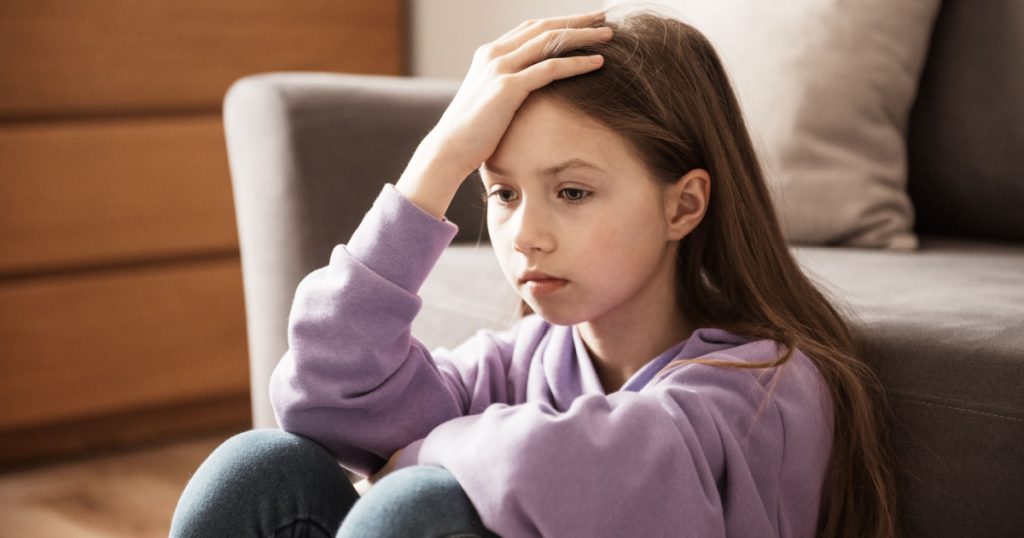
- Cries often
- Hypersensitive
- Gets grouchy or angry without any clear reason
- Afraid of making mistakes (even minor ones)
- Gets extremely anxious before/during tests
- Has panic attacks (or is afraid of having panic attacks)
- Has phobias and exaggerated fears
- Worries about things that are far in the future
- Is worried or afraid during drop-offs
- Frequent nightmares about losing a parent or loved one
- Let worries and fears distract them from playing
- Has obsessive thoughts or compulsive behaviors
- Has meltdowns or tantrums
2. Behavioral Signs in Children
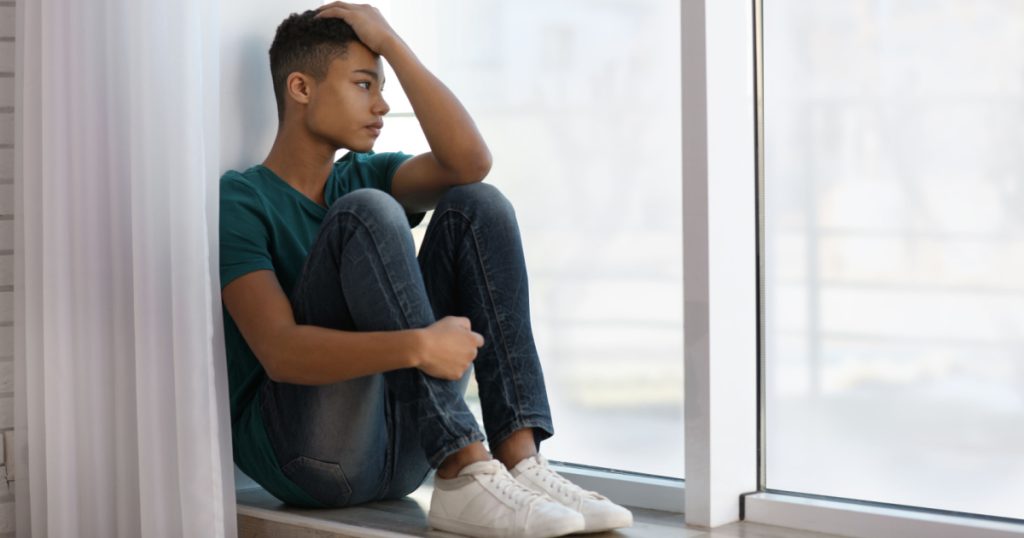
- Constantly asks “What if?”
- Avoids participating during circle time or other class activities
- Remains silent or preoccupied during group work
- Makes excuses to get out of going to school
- Stays inside or alone during lunch or recess
- Avoids social situations with peers after school or on weekends
- Becomes emotional or angry when separating from parents or loved ones
- Constantly seeks approval from friends, parents, and teachers
- Gives up before trying things
As we mentioned above, children may have trouble expressing physical pain. So, this list is especially crucial to keep in mind.
3. Physical Signs in Kids with Anxiety
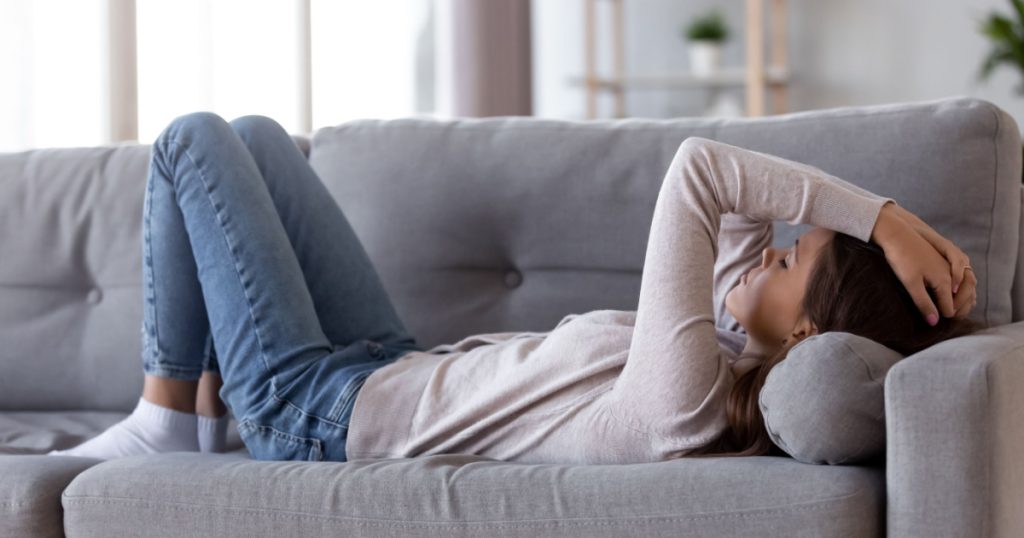
- Complains of headaches or stomach aches often
- Won’t eat snacks or lunch at daycare or school
- Refuses to use restrooms except at home
- Gets distracted, restless, hyperactive, or fidgety (even without an ADHD diagnosis)
- Begins sweating or shaking in new or intimidating
- Muscles are constantly tensed
- Can’t easily fall or stay asleep
Read: A Study Suggests That Husbands Who Have Controlling Wives Live Longer and Are Healthier
Studies Link Children’s Stomach Pain and Headaches to Anxiety
Dr. John V. Campo works with the Western Psychiatric Institute and Clinic at the University of Pittsburgh Medical Center – he claims that stomach pain could mean some children are suffering from anxiety and depression.
In an April 2004 study published in Pediatrics, Campo and his research team analyzed medical records of 80 children and adolescents. While 42 had chronic stomach aches, the other 38 had none. What they found was eye-opening: (4)
- 81% of the stomach ache group (especially those who were 12 years old and under) either had anxiety disorders or depression
- 79% of those with chronic stomach aches suffered from an anxiety disorder – usually separation anxiety disorder, generalized anxiety disorder, or social phobia.
- 43% of those with chronic stomach aches were diagnosed with some form of depression (31% of whom had severe depression)
- Anxiety disorders usually start at age 9 (i.e., about three years before the pattern of stomach aches begins)
- Compared to the other group, kids with stomach aches were significantly more likely to have behavioral problems and be disruptive in class
Headaches, Depression, and Anxiety
A February 2015 study published in the Korean Journal of Pediatrics found a link between headaches and depression and anxiety disorder. (5)
Researchers analyzed 720 children between 7 and 17 years old who visited a pediatric neurology clinic for headaches and then were referred to a pediatric psychiatric clinic.
Based on their findings, they suggested that children and adolescents who experience headaches should be screened for depression and anxiety disorder.
“Nineteen patients had headaches and clinically significant total scores for psychiatric symptoms. The mean age at headache diagnosis was 11.7 years, and 57% were male. The mean duration of headache was 11.5 months. Two point eight percent of the patients were diagnosed with psychiatric disorders including major depression (1.7%) [and] generalized anxiety disorder (1.1%).
How Can I Help My Kid with Anxiety?
The ADAA has outlined seven things parents and grandparents can do at home to help the child in your life who may be struggling with anxiety. (6)
Pay close attention to your child’s feelings and words
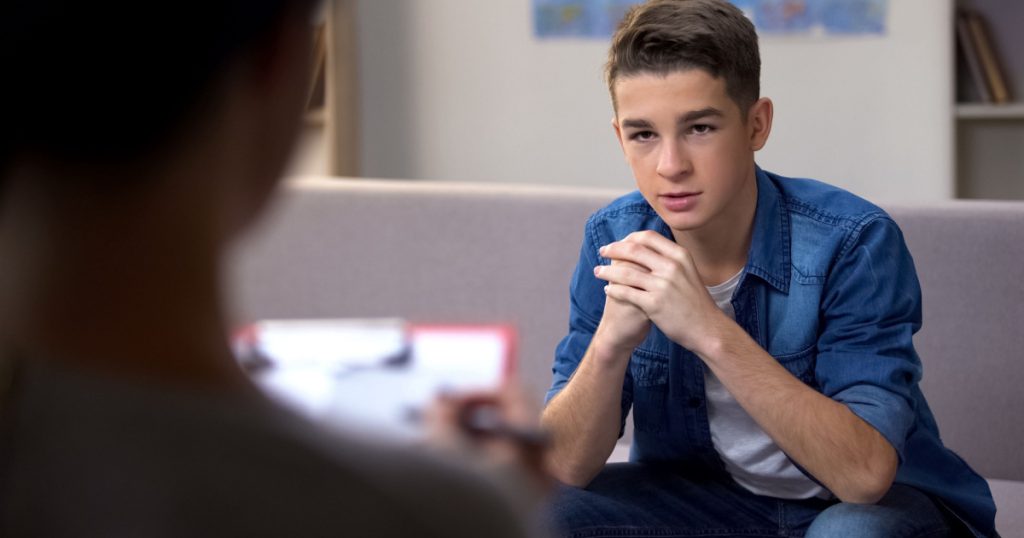
They can be subtle and you don’t want to let them go overlooked.
When your child becomes anxious, do your best to stay calm
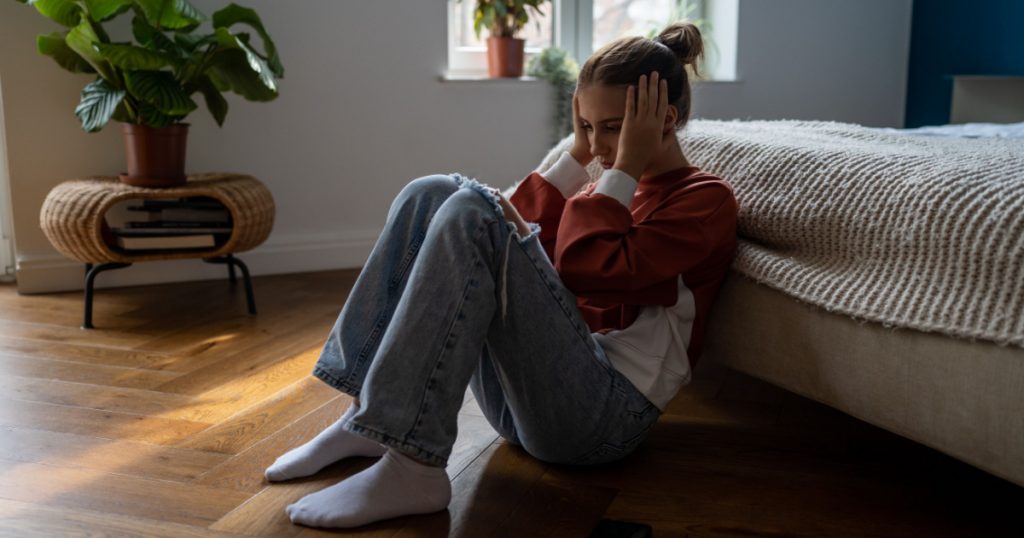
It will be hard to help keep your child grounded if both of you are anxious.
Recognize and praise small accomplishments

It may sound cliché, but it is the little things that can make the biggest difference. Sometimes an episode of anxiety can be remedied by a burst of positivity in a child’s life.
Don’t punish mistakes or lack of progress
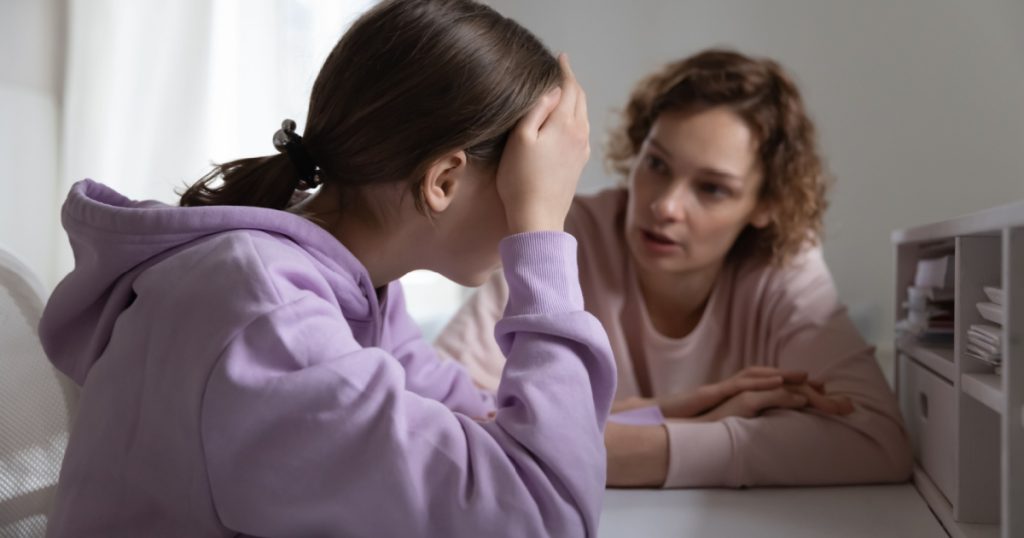
Every mistake made is an opportunity for growth. The more you make a habit of punishing mistakes or lack of progress, and children will fear trying.
Be flexible
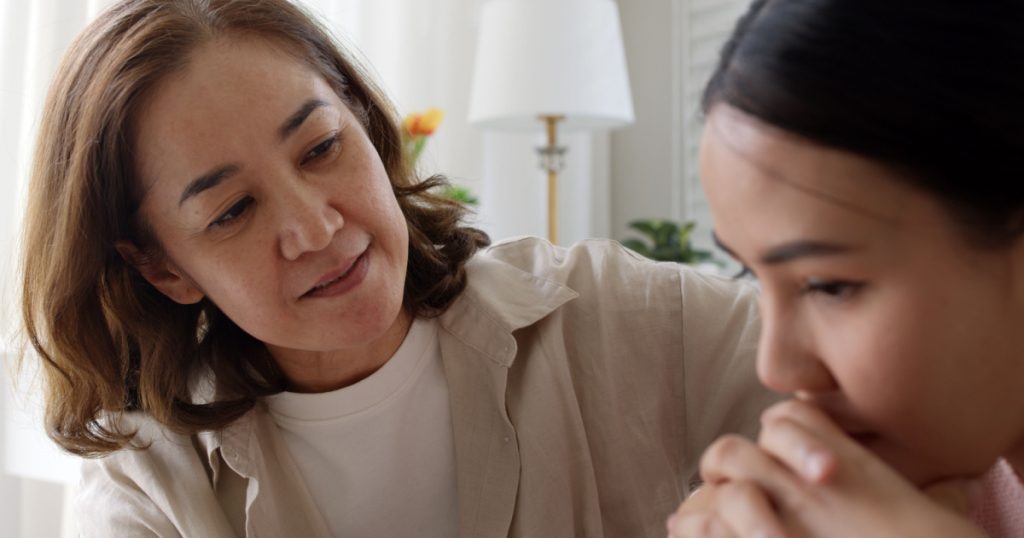
That said, try to maintain a normal routine.
Modify expectations during stressful periods
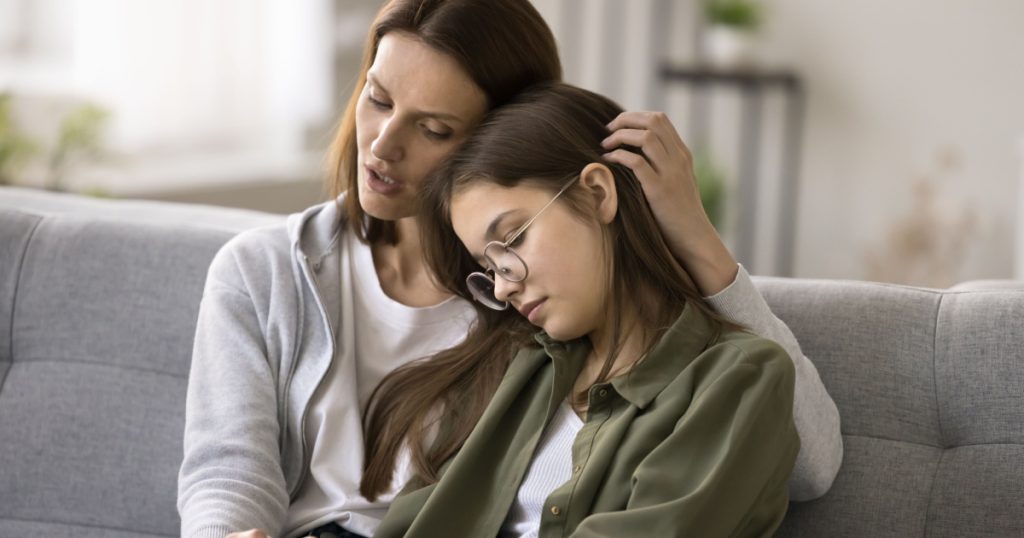
Not everything will always go as planned, so adaptability is an important skill to have.
Plan for transitions
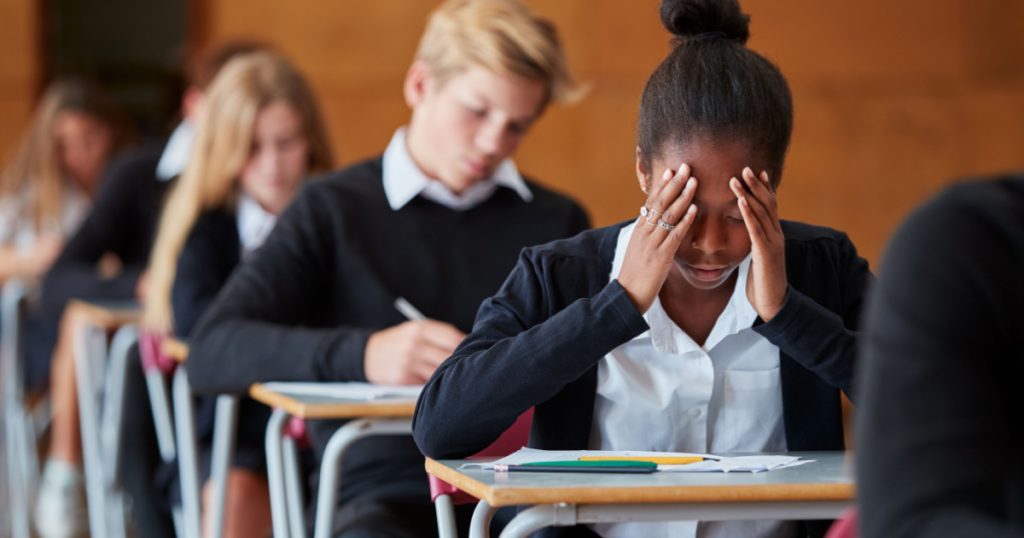
What might this look like? For example, make sure you give your child extra time if getting to school is difficult).
Keep Reading: Kissing Your Kids On The Lips Isn’t Weird. It’s All About Perspective.
